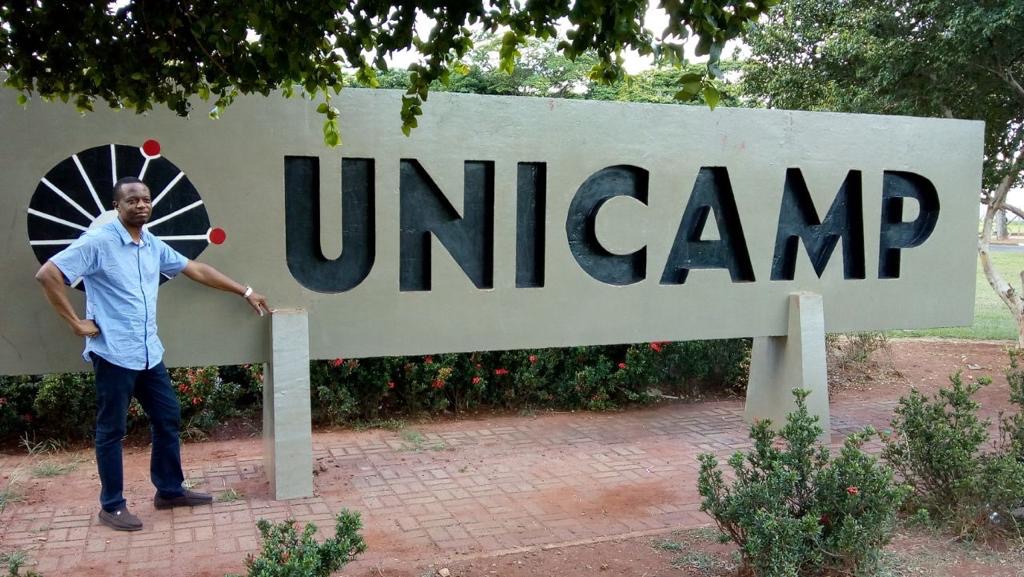
The Fiocruz Scholarship, a transformative platform for global scholars, is a Brazilian government-funded initiative. This international program invites prospective master’s and PhD students to study public health, biomedical sciences, biotechnology, medicine, and social sciences to advance research knowledge in these fields. As a prominent institution of science and technology in Latin America, Fiocruz’s mission is to fight against common diseases affecting Brazilian and international populations. The foundation hopes to equip researchers with the necessary education, foster collaboration, and work with international agencies to promote public health.
We had the pleasure of interviewing Chinedu Okeke, a devoted Medical Laboratory Scientist from Nigeria. He won a fully funded, 2-year master’s program in Campinas, Brazil. He shares his inspiring story of not only his move overseas and advice for other students but also how he’s making a significant impact on sickle cell research to help his community and individuals worldwide who suffer from this disease.
Can you please tell us about your background?
I was born in Nigeria and raised in the northern part of the country, Vom, Plateau State. Nigeria is a predominantly Christian and Muslim country, and I am a Christian from the southeastern part of Nigeria. I speak multiple languages, such as Igbo, Hausa, and English.
Before applying for the fellowship, I always believed there was no problem without a solution. One of my sayings is that knowledge is power, and with good knowledge and wisdom, there is no problem that cannot be solved. Growing up, my family and I lived in a community where we knew each other very well. We lived a communal life in Vom, and we cared about each other as well. Three of the community members I knew had sickle cell. This disease affected them, causing both physical, psychological, and financial distress. Whenever they had a crisis, the whole community would be there to support and help them.
When I had this opportunity for post-graduate education, I opted for medical microbiology and hematology because of the high rate of infectious diseases ravaging my community. This happened as a result of poverty, ignorance, and lack of government support for good health care. On a daily basis, children and women were treated for malaria, typhoid infection, and other infectious diseases. I was moved to tears whenever I saw children dying due to bacterial infections. I paid close attention, trying to provide some support and assistance.
When another opportunity arose, I studied hematology to gain insights into sickle cell blood and molecular aspects that might be associated with the disease. Therefore, I developed more interest in research and worked hard in hopes of trying to solve such issues about the disease.
As I studied Hematology and Blood Transfusion in my undergraduate school, I wanted to learn all I could. I believed that by being a better scientist, I could provide solutions to the diagnosis of sickle cell disease. Nigeria has the highest number of sickle cell individuals, and it is one of the most important diseases with a high mortality rate and morbidity. Hence, my focus area is on research and education to help reduce the burden of disease that is associated with sickle cell disease.
What led you to apply for the Fiocruz scholarship?
I applied for the Fiocruz scholarship because I wanted to acquire skills and more knowledge in sickle cell disease. I wanted to learn about genetics and molecular hematology, focusing on functional genes that might be associated with the renal condition. Aside from performing research, I also wanted to connect with other scientists in the field and see what they were doing differently from us in Nigeria.
Brazil has a very rich experience in this field with many research articles. Over the years, Brazilian scientists have provided insights into some genetic and therapeutic interventions. They have robust infrastructures built around this disease, which is highly commendable.
This opportunity would give me the tools to return to Nigeria and share the knowledge I had gained through publications, seminars, workshops, and conferences. All this together would allow me to make significant contributions to my community in treating sickle cell disease.
Can you share details about the application process?
Before applying to Fiocrux, I longed for some platform or method where I could become more familiar and experienced with sickle cell disease.
At that time, I was serving as a senior medical Laboratory scientist at the Center for Excellence for Sickle Cell Research and Training, part of the Department of Haematology and Blood Transfusion at the University of Abuja. My responsibilities included demonstrating practical and laboratory procedures with medical students and working closely with other researchers in the department. It was then that my supervisor introduced me to this opportunity.
The Fiocruz research project, generously funded by the Brazilian government, offers invaluable opportunities for master’s and PhD programs in medicine, arts, and humanities. Successful applicants are rewarded with monthly stipends in and around Brazilian universities, making it a highly sought-after opportunity.
An outcome of the program is to fit international students with the proper tools to apply what they learned to their home countries. It was a great privilege for me!
The application process starts with sharing your background experiences in research projects and your short-term and long-term goals. You must also write a mission statement on what you hope to accomplish or what you want to study. One must also share their ongoing research project and provide information about their future plans and goals as a researcher.
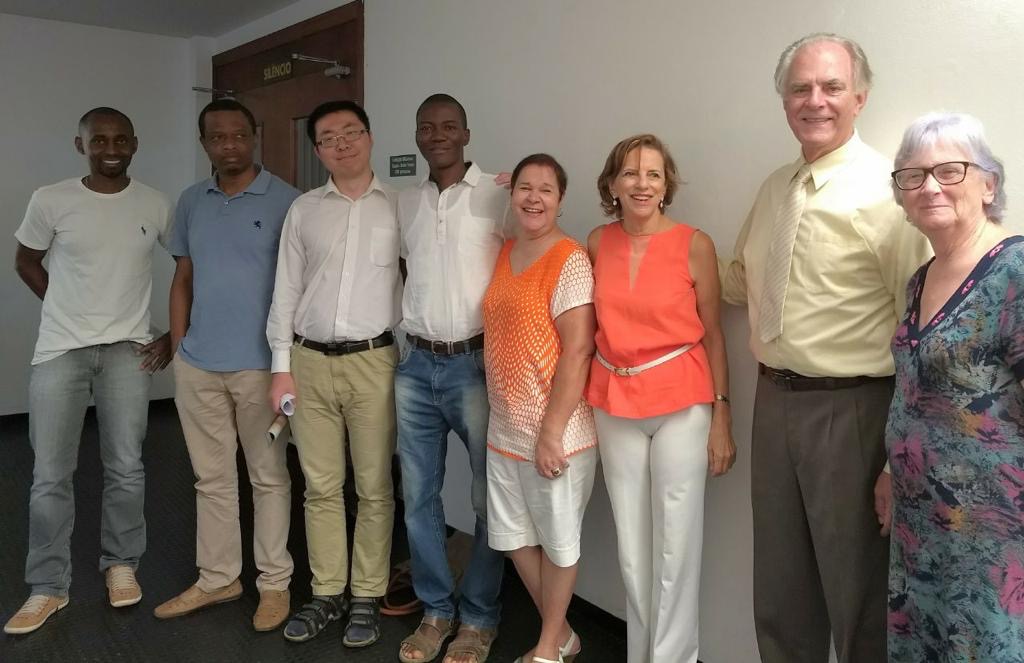
What was it like having to move overseas to Brazil? Were there any challenges or things you found easy during the move?
For this opportunity, I had to move overseas to Brazil. It was my first experience moving out of Nigeria to study in a different country. Traveling to Brazil was like a dream come true because I love Brazil as it is a football nation! It was amazing meeting with people you don’t know and going places you’ve never been for the first time! It was a great adventure for me because I had time to explore my new environment.
I had some challenges moving to Brazil. One was with the language, Portuguese, and the second was food, which was strange to me, being an African person. I had to adapt quickly because that would help me greatly and make my stay more manageable and more memorable. I had to make friends who helped me adapt. Thank God Brazilians are friendly and always willing to help!
How was your experience during your scholarship? What was the focus of your sickle cell anemia research?
My experience was very interesting because I had to learn Portuguese. Only a few Brazilians speak English. Many thanks to my supervisor for their support and guidance, which made my experience memorable. They made sure I was not uncomfortable, and they were always there for me. My average week was very short and occupied with a lot of research work and laboratory work as well, where I learned one technique and also improved my skills in new methods of diagnosis. Weekends were time spent on exercise, shopping, and laundry. I also made time to visit some friends and families.
My research project was very fascinating and captivating. I was super excited when my supervisor gave me the opportunity to work on my project topic. I was to investigate two genes involved in the renal function of sickle cell anemia in Brazilian patients. Brazil has a high population of sickle cell anemia individuals in South America. This disease was mainly found in the black population. Most of them have their historical origin in Africa as they migrated there as a result of the slave trade.
Interestingly, l discovered that these genes are associated with renal complications in sickle cell anemia patients. As a researcher interested in reducing this disease’s burden through research and education, I was ecstatic when I made this discovery.
How did you balance your time between them and research?
When I got to Brazil, I strategized and planned my time around my studies. Everything is about planning; as they say, a lack of planning leads to failure. I took Portuguese classes and another class on research methodology. It was an exciting moment in my life.
Despite my lectures, I still make time for my laboratory work. I gave less time to trivial things that would affect my studies negatively. I gave higher priority to my research work than anything else. I usually participated in their routine newborn screening procedures in the laboratory and attended research meetings with my supervisor and other faculty students.
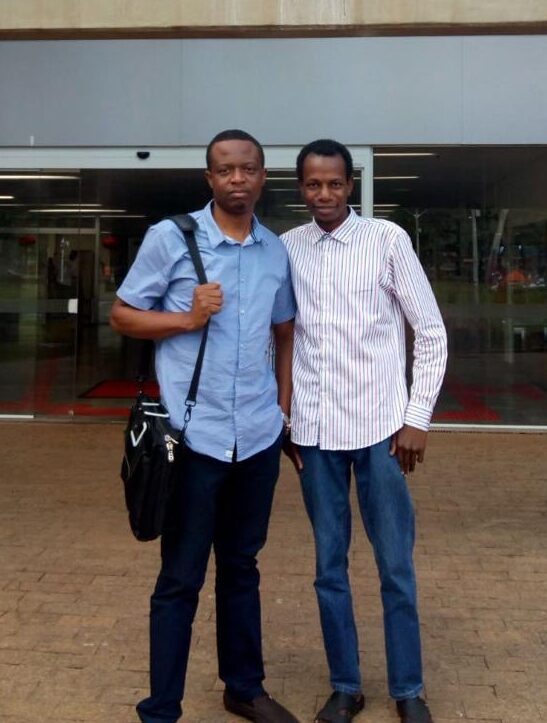
Where were any Brazilian cultural activities you took part in?
Yes, I participated in their famous Brazilian carnival, which happens once a year. This carnival comes with a lot of energy and excitement. Old, young, and even foreigners always look forward to this all-important event. The Brazilian government spends a lot of time and money preparing for the occasion, and they usually declare a week-long holiday for people to participate in it actively.
The carnival comes around February, and it is a time for them to showcase their cultural heritage and traditions. Many people usually look forward to it and save money for the carnival because some people use that period to travel to see their loved ones. Some see it as a time to relax and celebrate with their families. The carnival is also a time to travel to places they haven’t been before.
It was an exciting experience. At this event, people dress in their favorite costumes and dance to their favorite songs on the street. There is a lot of food to eat and drinks for fun seekers!
What was the biggest takeaway from the Fiocruz Scholarship? Where do you hope to go next?
The biggest takeaway was that my master’s degree study led to the publication of a critical research article, where l investigated some aspects of the gene expressions (heme oxygenase-1 and Bone Morphogenetic factors 1). These genes were found to be associated with renal function in sickle cell anemia. The study provided insights into the complexity associated with renal complications in sickle cell disease. The article has been cited in many significant research journals on sickle cell disease. I am delighted to contribute my research and findings to the body of knowledge.
Many thanks go to Professor E. O. Nnodu and Professor A. Adekile, who provided the platform for me to learn. I learned some fascinating techniques I am using right now in my laboratory and research work. I am thrilled and proud of them; they have been a great source of inspiration and mentorship for me and many others. Through their research and contributions, I believe that in the near future, sickle cell patients, both in the long term and short term, will benefit immensely, and this will help to increase their quality of life.
In the future, I want to develop my research skills further, pursue my Ph.D. degree, and build capacity in other areas of molecular hematology and genetics. I also want to collaborate with other scientists, participate in more exchange programs, and partake in training experiences with researchers around the world.
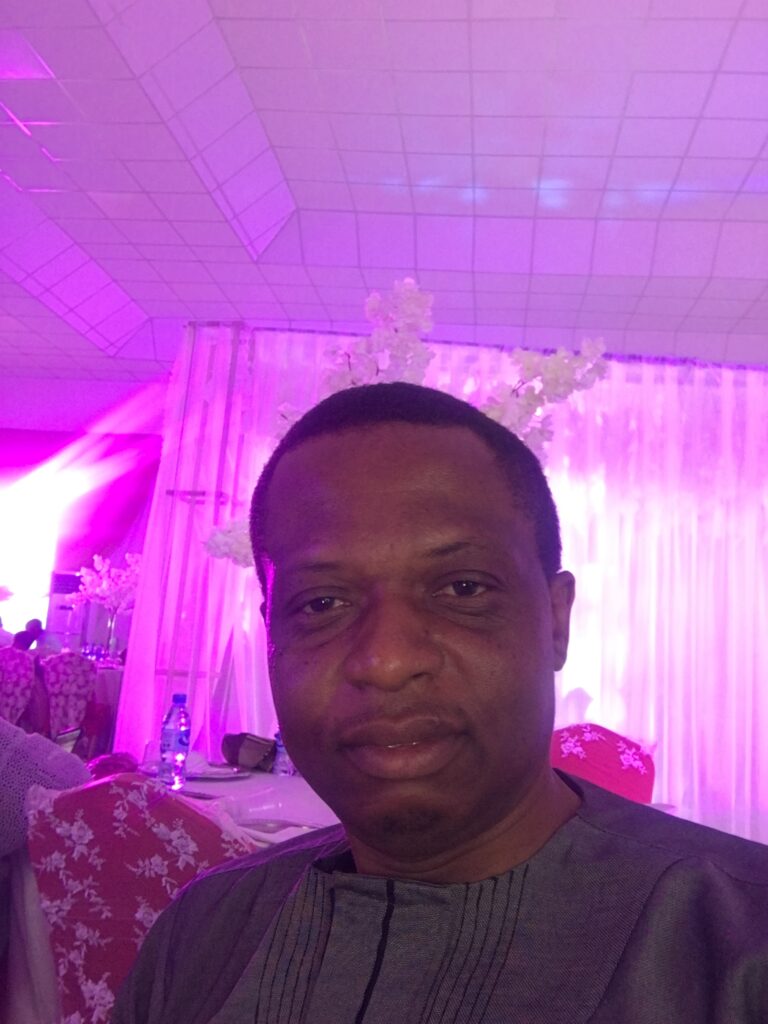
And lastly, can you share advice and application tips with our readers?
One valuable piece of advice I’d like to share is the notion that “life is in phases.” Often, the answers to your questions and challenges may be closer than you think. Therefore, it’s crucial never to give up on your dreams and life aspirations. Maintaining a focused mindset on your goals is key.
For prospective applicants, clarity about your objectives is paramount. Know what you want and where you’re heading. I strongly recommend early preparation, as it provides a distinct advantage over others in the application process. Lastly, be prepared to exert significant effort and dedication to turn your dreams into reality. Hard work is an indispensable factor in achieving your aspirations.
Interested in other international research programs? Be sure to sign up for the free ProFellow database with over 2,700 fellowships and fully funded graduate opportunities to see!
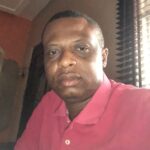
© 2024 ProFellow, LLC. All rights reserved.